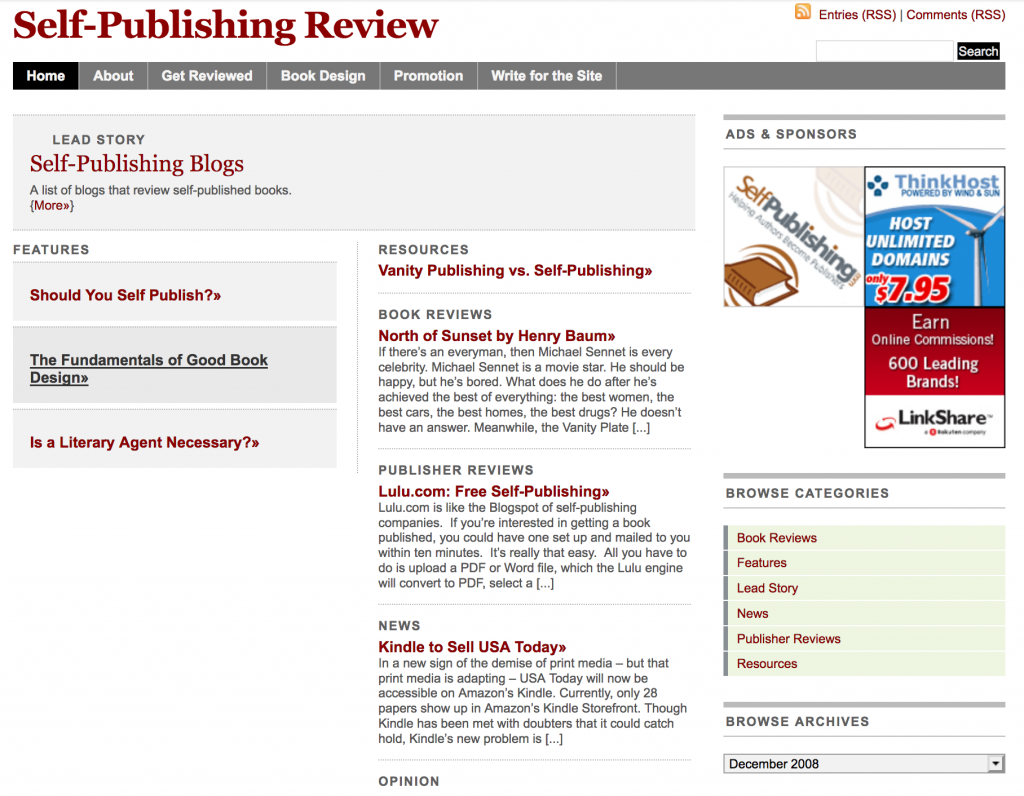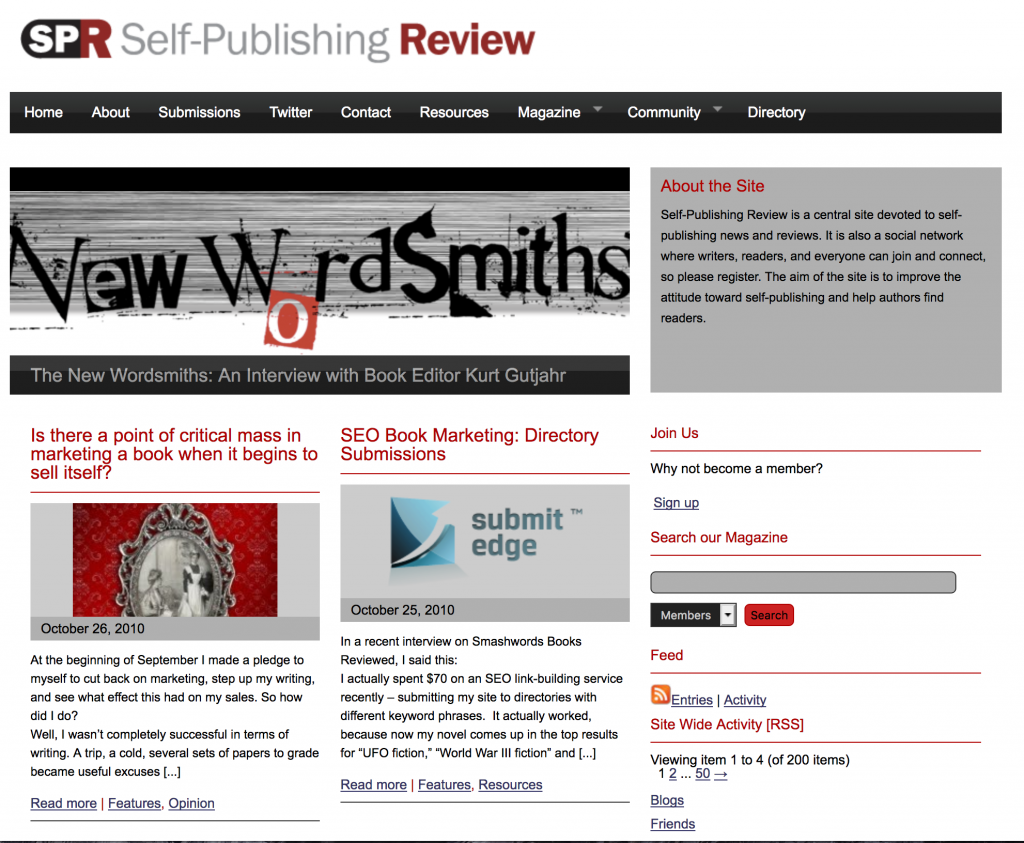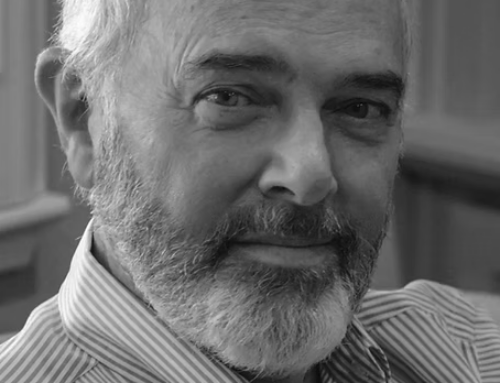
Henry Baum, Founder of SPR
Today, SPR is ten years old! Founder Henry Baum is a Manhattan-born Los Angeles musician and writer who currently lives near London, UK. He has been traditionally published in three countries, and has written several indie books, of which one has been made into a short film by Ruben Fleischer (director of “Zombieland” and “Venom”) starring Kevin Corrigan. He founded SPR in 2008 as a blog for authors to connect and share tips. Since then, the company has become a major startup in the the self-publishing industry, and employs several staff in the UK and USA.
What made you think about starting a blog for authors?
I originally started a blog around SEO (Search Engine Optimization). I was working as a freelance writer and writing a lot about SEO and thought a blog might generate some work. That idea lasted about two months. I was fine with doing the freelance work, but I couldn’t imagine devoting all my time to something like SEO. Books, on the other hand.
I’d self-published a novel a couple of years earlier, after seeing a friend do it the year before, and thought, holy crap, that’s a book! I’d been struggling so hard to get published. I’d had agents and been published traditionally on small presses, and not much had happened with subsequent novels, except for nice rejection letters. So the idea I could cut through that was a revelation. I loved the whole idea of it – the freedom, the idea that every book could see the light of day. Gatekeeping was a kind of censorship. Sure, terrible books get through, but so can great ones that might’ve not had an opportunity.
So self-publishing was something I really believed in. I looked up the URL and couldn’t believe it was available. At the time there were like 5 blogspot blogs devoted to reviewing print-on-demand books. There was nothing really about the whole movement, something that took self-publishing seriously as a cultural phenomenon.
This was back when the term “self-publishing” would inevitably be followed by the word “stigma” so a lot of the early emphasis was on defending self-publishing against critics. It was something I loved, so it was nice to have a site I could devote myself to fully.
How many indie author services were around when SPR was started?
There were the POD houses that still exist today, but are dwindling in influence. The Kindle revolution didn’t exist yet. Ebooks were still thought of as a joke. I was reviewing books on a Sony Reader, which doesn’t exist any more.
There certainly wasn’t the whole industry that exists today: book cover designers, editors, distributors, reviewers, and the like. There really was no single site devoted entirely to self-publishing.
Where did the SPR office start out? How did you get it together?
It started out as a one-man job out of an apartment in Los Angeles, now with offices in the U.S. and UK with close to 20 people on hand. Someone asked me in those early days if the site was a product of Bowker, which was flattering. It was really me, WordPress, and a decent magazine template. The first review was a collection of reviews from other sources of my own novel:

The site quickly got a lot of contributors and reviewers because it was the main site on the map. Then it got its first logo, and a new template, back when the site had a social media component for a while, before Facebook took over everything:

Cate has taken over many duties now. She came on first as a reviewer, we fell in love online (she was in Spain, I was in the U.S.), and then we got married (to say this site has had a big impact on my life would be an understatement) and really made the site take off. She has professional experience in marketing, design, editing, filmmaking, and on, and she really took the site to where it is today.
How did the reviewing service start, and how did it develop?
I was getting too many books to review. Literally, a growing pile of book 5 feet square and high in the corner of my office. As I said, this was the POD era, so people didn’t even have ebooks yet. I couldn’t review them all, and really nobody could.
The idea was that I could pay reviewers and also guarantee that every book that’s submitted would be able to get a review. That’s unheard of for any book review outlet. This was of course controversial, as every new venture perennially is with self-publishing, but over ten years a lot of authors have been helped by the service. People are much less cynical about paying for marketing these days, as it’s become so competitive and you do what you can. The people who are skeptical think “paid reviews” means “paid positive reviews” and that’s not what’s happening here. It’s harder and harder to cut through, and people are grateful for the attention, even when the review is critical.
What are the challenges for indie authors today, compared to 2008?
The number of books, certainly. In 2008 there was less competition, but then there really wasn’t a POD Amanda Hocking. Only with Kindle could a self-published author become a best seller and millionaire. That’s true less and less, but even if the goldrush is over, the publishing rush isn’t, because self-publishing isn’t all about making a mint, it’s about creativity and self-expression, though it wasn’t so much in the goldrush days.
Who has become a famous author after signing up with SPR as a member?
Amanda Hocking is the big one. M. Louisa Locke is another. Darcie Chan was an early interview. There are probably others, but I haven’t scanned through the thousands of users to see who’s hit it big.
Do you think that the industry is very different to back then?
Definitely. In obvious ways, self-publishing is a staple part of the industry now. It’s not going away, and it’s not as frowned at as it was before. There are many who think it’s not “real” publishing, and in some cases they’re right. You really can’t meet national/global distribution for a self-published book (by and large), so that’s still a hurdle, that’s always been the case.
But as with Amanda Hocking, money talks. There are so many profiting off self-publishing via book design, editing, etc. services that people are perhaps grateful that there are so many eager writers, so nobody is going to denigrate an industry that’s a significant part of the publishing economy. It’s been a long time since I’ve seen a stigma post, and when there is one, it’s obviously done to gin up controversy for clicks. I’m looking at you, Goodereader.
How can authors be sure of the advice they get online about self-publishing?
My first advice is to not believe the outrage. Lately, apart from self-publishing, it’s become an outrage culture with people looking for the next thing to hate. The self-publishing community were pioneers on this front, overly critical of any service that came along. If you charged money, it must be a scam. This was exacerbated by the fact that there were real scammers out there (not so much now). But if self-publishers should know anything is that an entire industry cannot be tarred because of a few bad eggs (i.e. all self-published books are bad because, look at how bad this one is).
These days, self-publishers are very quick to doubt new services that come along, and there can be a mob mentality about destroying a company, or even an author, before all the evidence is in. The worst is when people start writing 1-star reviews on an author’s book without having read the book, based on a rumor about something the author has done. Even if the author’s in the wrong, don’t do this. It diminishes the import of Amazon reviews for one, but to be a successful writer, you don’t need to hate on other writers.
We’ve had situations where authors criticizing our services in a forum, or even on their own website, only to see them buy something later – Yeah, that’s terrible! (Hmmn, I might try that). Some have even written books on how to sell books…then secretly come to us for promotion services. I could name names, and some are big names in the naysaying department. But that would be unprofessional…
What have you learned in the ten years you have run SPR?
I’ve learned a lot about running a business. General stuff like social media marketing, web design (I’m kind of a WordPress plugin addict), and coding. I’d always worked for other people, sometimes for startups that were run terribly and failed, and I learned what not to do from them. Usually, three or four of us might decide on and create a new implementation in three days, such as a new product or logo, something that would take three months or more with twenty people in a traditional media company! There’s so much wasted time and resource in a 9 to 5. I myself worked remotely for SPR on dialysis three times a day for a year in 2015, and then straight after my kidney transplant from my home office. We’ve proved homeworking doesn’t have to be a monkey-peanut situation if you have the right team.
I think I’ve become a more patient writer as well. That may be age, but early on I was so anxious to be published that I might have rushed things. So I’ve learned from my own publication history as well as from the business. I’ve seen too many authors rush their own books into production, as hundreds of books cross the path of SPR and you can tell immediately when someone has cut corners.
What do you expect will be going on in self-publishing when SPR is 20 years old?!
More big name writers will self-publish. I’m hoping more literary writers, and readers, will see it as an outlet, which I think will be the case, because self-publishing offers so much creative freedom. Publishing deals will be more frequent where big writers put out their own stuff as well.
Kindles will be $10, so this will spur that evolution – everyone will be reading ebooks. Print will still be strong, because the two can’t compare. There may be technology on the way to remedy that. My fantasy is a book with 300 blank screens as flexible as paper, and you upload the ebook to the empty pages of the book. They’re working on flexible ereaders right now, so it’s not that far-fetched. The outer part of the electric book could show the cover. One of the reasons people haven’t adapted to ebooks is they like to show off what they’re reading.
Still, that won’t kill printed books because people still like to own what they’ve read and color a room with them. I know I do. Also, you can’t sniff an eBook!
What’s the one piece of advice you would say is the absolute golden rule for self-publishing a book?
Don’t expect to spend no money. You will have to pay for design, editing, and marketing. If you’re a self-publisher, you need to invest money as a publisher does. Really, I don’t say that as a person who runs a business. Self-publishing takes an investment of money and time, the same amount of energy – or more – it took to write the book in the first place, and you may be doing that for ten books at once.
To celebrate our 10-year anniversary, get 10% off anything until the end of the year with the checkout code: BDAY10
Get an Editorial Review | Get Amazon Sales & Reviews | Get Edited | Get Beta Readers | Enter the SPR Book Awards | Other Marketing Services






















Leave A Comment